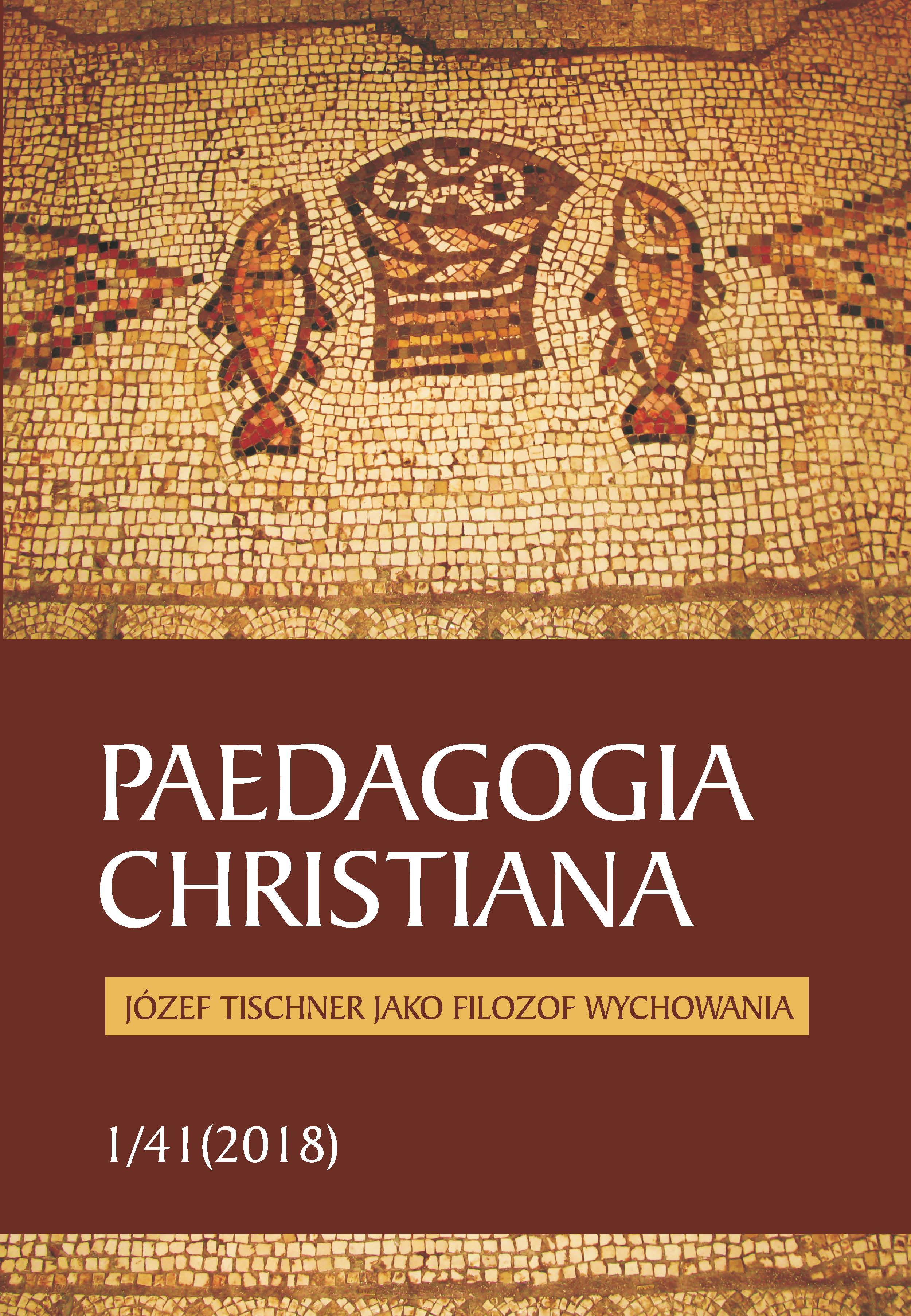Through Drama to Dialogue. The Role of “Word” in the Arriving at Dialogue according to Ferdinand Ebner
DOI:
https://doi.org/10.12775/PCh.2018.009Keywords
Ferdinand Ebner, conditions of dialogue, philosophy of dialogue, philosophy of a drama, wordAbstract
Dialogue philosophers who are realistic about their matter, pay more attention to the arriving at dialogue than to dialogue itself. We see such an attitude, among others, in the writings of Ferdinand Ebner and Józef Tischner. Dialogue is a target situation, while the road to it is long and uncertain – according to Tischner, it leads through drama. Ebner, on whom we focus here in particular, sees the matter as follows: The “I” communicate with “You” through word and love. If the dialogue fails, then one of these four elements simply lacks. Because of the lack of space for the analysis of all these elements, we will focus on the word here. So what must the word be for dialogue to be possible? Let us list such characteristics of the word as its “actuality”, both factual and personal, transparency in relation to the presented reality, connection with love, creative power (generative or “only” maieutic) and much more. However, it is difficult to deterministically define the terms of dialogue saying: When I do this and this, dialogue will definitely succeed. There is always an element of freedom and grace, as well as hope.
References
Althusser, Louis. „Ideologie i aparaty ideologiczne państwa”. www.filozofia.uw.edu.pl/skfm/publikacje/althusser05.pdf [dostęp: 20.03.2018].
Dürr, Hans-Peter. „Prof. Dr. Hans-Peter Dürr Physiker im Gespräch mit Reinhold Gruber“. http://www.br.de/fernsehen/ard-alpha/sendungen/alpha-forum/hans-peter-duerr-gespraech100.html [dostęp: 29.12.2017].
Ebner, Ferdinand. „Die Christusfrage“. W: Ferdinand Ebner, Schriften, wyd. Franz Seyr, t. 1, 450-505. München: Kösel, 1963.
Ebner, Ferdinand. „Die Wirklichkeit Christi”. W: Ferdinand Ebner, Schriften, wyd. Franz Seyr, t. 1, 522-573. München: Kösel, 1963.
Ebner, Ferdinand. „Versuch eines Ausblicks in die Zukunft“. W: Ferdinand Ebner, Schriften, wyd. Franz Seyr, t. 1, 719-908. München: Kösel, 1963.
Ebner, Ferdinand. Schriften, wyd. Franz Seyr, t. 2. München: Kösel, 1963.
Ebner, Ferdynand. Słowo i realności duchowe. Fragmenty pneumatologiczne, tłum. Krzysztof Skorulski. Chojnice: Oficyna Wydawnicza Fundacji Fuhrmanna, 2016.
Gadacz, Tadeusz. „Problem zła w filozofii Józefa Tischnera”. http://www.tischner.org.pl/tadeusz-gadacz/problem_zla_w_filozofii_jozefa_tischnera [dostęp: 15.03.2018].
Kostyło, Piotr. „Ferdinand Ebner i paradoks samotności”. Paedagogia Christiana 1 (2015): 79-98.
Methlagl, Walter. „Konflikt aspektów. Ferdinanda Ebnera myślenie w odniesieniach”. Paedagogia Christiana 1 (2015): 41-62.
Skorulski, Krzysztof. „Ferdinand Ebner i miejsce filozofii dialogu w myśli katolickiej XX wieku”. Paedagogia Christiana 1 (2011): 49-68.
Tischner, Józef. Filozofia dramatu. Kraków: Znak, 1998.
Tischner, Józef. Spór o istnienie człowieka. Kraków: Znak, 1999.
Watzlawick, Paul, Janet Beavin Bavelas, Don D. Jackson. Pragmatics of Human Communication: A Study of Interactional Patterns, Pathologies, and Paradoxes. New York: Norton, 1967.
Downloads
Published
How to Cite
Issue
Section
Stats
Number of views and downloads: 687
Number of citations: 0



